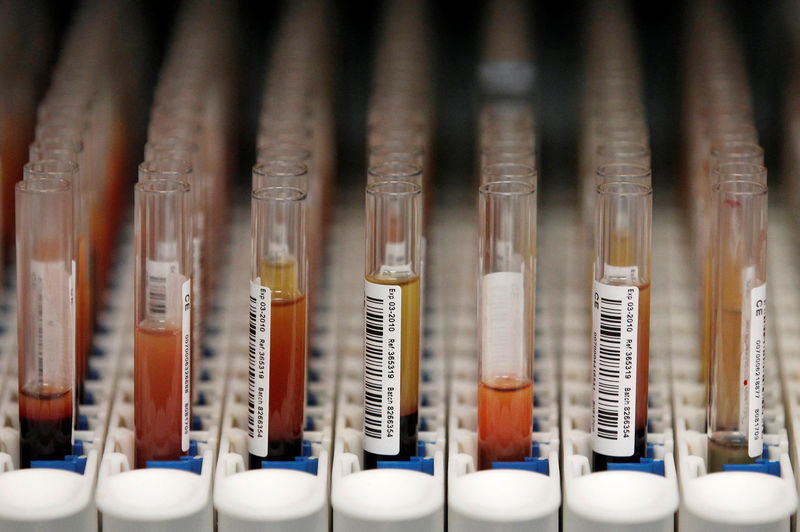By Ben Hirschler
LONDON (Reuters) - Britain's GlaxoSmithKline (L:GSK) and U.S.-based Regeneron Pharmaceuticals (O:REGN) are embarking on a joint project with UK Biobank, the world's most detailed biomedical database, to hunt for new clues linking genes and disease.
By analysing genetic variations and health in 500,000 middle-aged and older Britons, the partners said on Thursday they hoped to identify promising leads for new medicines.
The aim is to analyse DNA from an initial 50,000 samples by the end of 2017, using Regeneron's large gene sequencing centre in New York. Completing a gene sweep for all 500,000 participants is expected to take three to five years.
The move marks an acceleration of investment by drugmakers in genetic science, as industrial-scale sequencing and falling costs allow research teams to quickly test for the effect of gene variations across thousands of individuals.
GSK's British rival AstraZeneca (L:AZN) signed a similar deal with genome pioneer Craig Venter a year ago to sequence genes from up to 2 million people over 10 years. [nL5N17O7FC]
Volunteers aged between 40 and 69 first checked into the UK Biobank between 2006 and 2010, donating blood and other biological samples and agreeing to have their health followed through medical records over many years.
Lon Cardon, head of target sciences at GSK R&D, said the database was now coming into its own as an information source as growing numbers of participants start to develop conditions from cancer to dementia, which can be cross-checked against genes.
GSK and Regeneron will get nine months exclusivity to pore over the initial trawl of data before the information is made openly available to other scientists. Any research findings will also be put back into the public domain.
Both drug companies hope the information throws up new opportunities for drug development, but they view the exercise as "pre-competitive".
Apart from paying the cost of sample retrieval and shipping, GSK and Regeneron will not be charged by UK Biobank. Instead, they will effectively make a "payment in kind" by sequencing the DNA for future use by the wider scientific community.
Sequencing all the protein-encoding parts of all the genes from the project's 500,000 participants will cost an estimated $150 million. Such so-called exome sequencing costs about $300 per individual, against $1,000 for whole genome sequencing.

All the genetic and other medical data collected by UK Biobank has been anonymised and participants will not get any feedback on their individual circumstances.